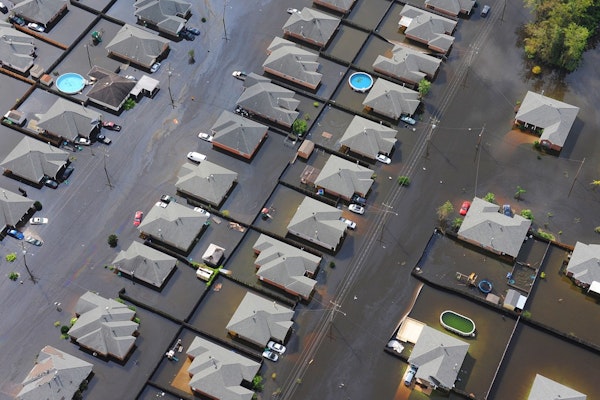
Billions in Losses Loom for Insurers as LA Wildfires Rage
Moody’s projects insured losses from uncontained LA wildfires to range from $10 billion to $20 billion, impacting homeowners, commercial insurers, and the E&S market amid California’s ongoing insurance challenges.
January 13, 2025
Catastrophe
Legislation & Regulation
Property
Risk Management
California

Insurers Face Major Net Losses from Los Angeles Wildfires, Highlighting Reinsurance Dynamics
The Los Angeles wildfires are projected to result in $20 billion in insurance losses, prompting reinsurance recoveries for some carriers as analysts assess exposure across property and auto lines.
January 13, 2025
Catastrophe
Property
Risk Management
California

Aerial Firefighting Ramps Up as California Wildfires Devastate Los Angeles
California’s Palisades Fire has consumed thousands of acres and homes, with high winds complicating firefighting efforts. Federal aid and state resources aim to assist affected residents.
January 13, 2025
Catastrophe
Legislation & Regulation
Property
Risk Management
California

Systemic Cyber Risk: Assessing Aggregation in Healthcare and Maritime Industries
The Lloyd’s Market Association introduces a framework for evaluating systemic cyber risks, focusing on healthcare and maritime industries, to aid insurers in risk management.
January 13, 2025
Insurance Industry
Risk Management
Technology

USDA Studies Find Elevated Health Risks for U.S. Meat Plant Workers
Two USDA studies reveal that U.S. chicken and pork plant workers face significantly higher risks of musculoskeletal disorders, raising concerns about workplace safety in the industry.
January 13, 2025
Legislation & Regulation
Liability
Risk Management
Workers' Compensation

Navigating Legacy System Modernization in Insurance
Insurance firms must decide between building new systems or enhancing legacy platforms through "wrapping" as digital transformation reshapes the industry.
January 13, 2025
Education & Training
Insurance Industry
Risk Management
Technology

Emerging Insurance Trends Redefining Claims Management in 2025
Discover the top claims and risk management trends for 2025, including AI-driven solutions, cyber insurance evolution, wearables in the workplace, and enhanced catastrophe response.
January 13, 2025
Catastrophe
Risk Management
Technology
Workers' Compensation

Key Steps to Mitigate Cyber and Liability Risks When Adopting Generative AI
Generative AI promises cost savings and efficiency, but businesses must carefully navigate risks like liability, cyber vulnerabilities, and data privacy before implementation.
January 13, 2025
Liability
Risk Management
Technology

Workplace Injuries Must Meet Specific Criteria for Compensation, Virginia WCC Rules
The Virginia Workers’ Compensation Commission denied benefits to a school bus driver, emphasizing that injuries caused by simple acts like walking are not automatically compensable.
January 8, 2025
Legislation & Regulation
Litigation
Risk Management
Workers' Compensation
Virginia

Thousands Evacuate as Wildfires Devastate Los Angeles Area
Southern California faces extreme fire conditions fueled by hurricane-force winds, forcing mass evacuations and widespread power outages, with no immediate relief in sight.
January 8, 2025
Catastrophe
Legislation & Regulation
Property
Risk Management
California

Commercial Insurance Rates Moderate in 2024 as Catastrophe Losses Decline
Commercial insurance premiums saw slower increases in 2024, averaging 3.75%, compared to 4.56% in 2023, as lower catastrophe losses drove deceleration in property rates.
January 8, 2025
Auto
Liability
Property
Risk Management

Adjusting to Change: Embracing AI in Workers’ Compensation Claims
Artificial intelligence is reshaping workers’ compensation, offering faster claims resolution and fairer settlements, but overcoming resistance from seasoned adjusters remains a challenge.
January 8, 2025
Litigation
Risk Management
Technology
Workers' Compensation

Florida Couple Accused of Running $11 Million Insurance Fraud Scheme via Unauthorized Dental Practices
A Florida couple allegedly orchestrated an $11 million insurance fraud scheme through unauthorized dental practices, deceiving patients and insurers to fund a luxury lifestyle.
January 7, 2025
Fraud
Insurance Industry
Legislation & Regulation
Risk Management
Florida

How Manufacturers Can Safeguard Against the Rising Threat of Cyberattacks
Manufacturers face increasing cyber risks as digital systems grow more integral. Learn how to mitigate vulnerabilities and protect your operations from financial fallout.
January 7, 2025
Liability
Risk Management
Technology

How Data Innovation Is Shaping the Insurance Industry’s Response to Climate Risks
Presenters at Triple-I’s Joint Industry Forum spotlighted how granular data, innovative insurance products, and consumer education are closing climate-related protection gaps.
January 7, 2025
Catastrophe
Legislation & Regulation
Property
Risk Management
California





